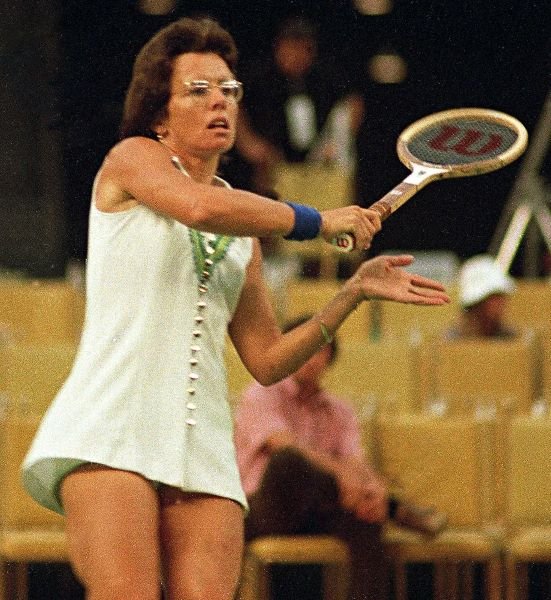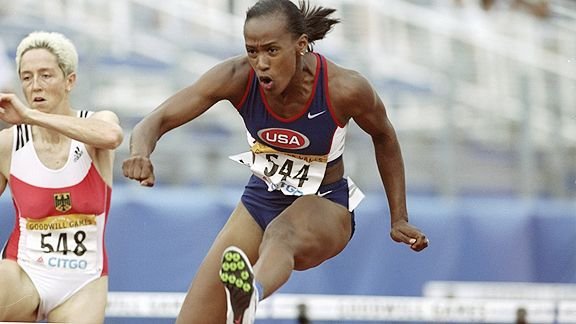Fostering Sportsmanship and Respect in Youth Sports
Discover strategies for instilling important values in young athletes, ensuring they carry lessons of sportsmanship and respect into all areas of life.
Learn how promoting values like sportsmanship, respect, and integrity benefits young athletes both on and off the field.
– Coach Johnny

Introduction: The Foundation of Youth Sports
Teaching skills and techniques in youth sports are only part of a coach’s or parent’s role.
Instilling values such as sportsmanship, respect, and integrity in young athletes is equally important to technical skill development.
These core values do more than enhance the sports experience; they contribute significantly to developing well-rounded individuals who thrive in and out of competitive environments.
This blog post dives into why these values are necessary and discusses strategies to promote them in young athletes.
Reinforcing these principles helps coaches and parents foster a positive sporting environment that emphasizes ethical behavior, personal growth, and athletic achievement.

“Be more concerned with your character than your reputation, because your character is what you really are, while your reputation is merely what others think you are.”
– John Wooden’s insight underscores the essence of integrity and sportsmanship over winning or external perceptions.
The Importance of Sportsmanship
Sportsmanship extends beyond merely adhering to the rules of the game.
It includes demonstrating fairness, humility in victory, grace in defeat, and respect for teammates, opponents, officials, and the game.
Nurturing sportsmanship is necessary in youth sports, as it helps prevent conflicts and enhances the game’s enjoyment for all participants.
It also teaches young athletes essential life skills, such as how to constructively handle setbacks and disappointments and maintain positive relationships with peers and authority figures.
Instilling these values helps coaches and parents guide young athletes to become better competitors and more gracious and well-rounded individuals.
This foundational aspect of sports teaches children valuable lessons that apply both on and off the field, fostering a respectful and supportive sporting environment.
“Success is no accident. It is hard work, perseverance, learning, studying, sacrifice, and most of all, love of what you are doing or learning to do.”
– Pele stresses the importance of passion and respect for the sport, which is foundational to good sportsmanship.

Respect: The Universal Language of Sports
In sports, respect is fundamental and is the foundation of all interactions.
This respect extends beyond personal interactions or even good sportsmanship, including honoring the game’s rules.
Teaching young athletes about respect helps them understand the profound impact of their words and actions on others.
It encourages them to cultivate a positive attitude, promote fair play, and embrace inclusivity, which enhances the sporting experience for everyone.
Fostering a respectful environment prepares our young athletes to be better sportsmen and women and more considerate and ethical individuals in all areas of life.
Encouraging respect in sports is essential for creating a nurturing, supportive, and inclusive atmosphere where all participants feel valued and motivated to give their best.
Integrity: Playing with Honor
Integrity in sports is about more than just following the rules; it embodies the essence of playing with honor and maintaining strong moral principles.
On the field, integrity involves making decisions that align with the game’s rules and the higher standards of good sportsmanship and ethical conduct.
This commitment to honesty means players choose to act fairly and responsibly, even when they might benefit from acting otherwise.
Carrying these principles into everyday life is crucial for an athlete’s personal growth and success off the field.
Demonstrating integrity in sports sets a powerful example for all participants, reinforcing the value of good sportsmanship and ethical behavior.
Prioritizing integrity allows coaches and players to foster a sports environment that respects the spirit of competition and cultivates honorable athletes in all aspects of their lives.

“Sports teaches you character, it teaches you to play by the rules, it teaches you what it feels like to win and lose—it teaches you about life.”
– Billie Jean King highlights how sports serve as a microcosm of life, teaching fundamental values that extend beyond athletic competition.
How to Promote These Values
Model Desired Behaviors
The most effective method to instill values such as sportsmanship, respect, and integrity in young athletes is by demonstrating these virtues consistently.
Coaches and parents play pivotal roles as role models, as young athletes often mimic the behaviors they observe in their mentors.
It is crucial for coaches and parents to demonstrate these values not only during competitions but also in practices and in everyday interactions.
Whether it’s respecting the referee’s call during a heated game or applauding the effort of all players, not just the winners, these actions teach young athletes about good sportsmanship and ethical conduct.
Encourage Team Activities
Team activities that foster bonding and understanding among players are excellent for reinforcing the values of respect and integrity.
Such activities should emphasize teamwork, collective success, and mutual respect.
Team-building exercises, group discussions on sports ethics, and collaborative goal-setting sessions can all serve as platforms to stress the importance of working together and supporting one another.
This not only strengthens the team’s cohesion but also ingrains a deeper appreciation for each individual’s contribution, regardless of their role or performance level.
Promote Open Discussions
Creating an environment where athletes feel safe to express concerns and discuss their views about fairness and decision-making can further promote these crucial values.
Open discussions about scenarios encountered during games or practice can lead to better understanding and appreciation of sportsmanship and integrity.
These discussions should be guided by coaches and parents, encouraging athletes to reflect on their actions and the actions of others, analyze the outcomes, and consider how they align with the principles of good sportsmanship.
Reward Positive Behavior
Acknowledging and rewarding behavior that exemplifies good sportsmanship, respect, and integrity can motivate athletes to adhere to these standards.
Recognitions can be as simple as verbal praise during a team meeting, highlighting efforts during a post-game debrief, or formal awards at the end of the season.
Rewards for demonstrating positive behavior reinforce the importance of these values and encourage other team members to act similarly.
Coaches and parents who integrate these strategies can effectively promote a culture of good sportsmanship, respect, and integrity.
This shapes athletes in their sports and also as principled individuals in their communities.
Address Negative Behaviors
It is crucial not to ignore or overlook negative behaviors such as taunting, cheating, or disrespect in sports.
These actions undermine the spirit of good sportsmanship and can negatively impact the team and the sport as a whole.
Coaches and parents must address these behaviors immediately and constructively discuss why they are harmful.
An effective approach involves having clear, predefined consequences for such actions, which helps establish and enforce a culture of respect and integrity.
Explaining the consequences of negative behaviors not only to the individuals involved but also to the entire team, emphasizes how these actions can disrupt unity, trust, and performance.
For instance, if a player is caught cheating, a coach might remove them from the game to demonstrate that unethical behavior will not be tolerated, followed by a team discussion on the importance of fairness and honesty.
This teaches all team members the value of playing by the rules and the long-term benefits of maintaining a clean competitive spirit.
“True heroism is remarkably sober, very undramatic. It is not the urge to surpass all others at whatever cost, but the urge to serve others at whatever cost.”
– Arthur Ashe’s words reflect the core of sportsmanship—placing the good of the team and fairness above personal glory.

Celebrate Examples of Good Sportsmanship
Highlighting and celebrating examples of good sportsmanship is equally important.
When athletes display exceptional sportsmanship, respect, or integrity, make these moments teachable highlights for the whole team.
Celebrating these instances can be done through verbal recognition in post-game talks, featuring the athletes in team newsletters, or giving awards for sportsmanship at the end of the season.
Such recognition not only rewards the individual but also sets a powerful example for their peers, motivating others to emulate commendable behaviors.
It reinforces the idea that sports are not just about winning, but more importantly, about how you play the game.
By openly valuing and praising acts of good sportsmanship and respect, coaches and parents foster an environment where positive behaviors are as celebrated as victories.
This approach helps cultivate athletes who value integrity and respect, contributing to a healthier, more positive sports culture.
Incorporating these strategies ensures that sportsmanship remains a cornerstone of youth sports, encouraging athletes to carry these values into all areas of their lives.
Educate Athletes Regularly
Integrating discussions about sportsmanship, respect, and integrity into regular team meetings or training sessions is crucial in reinforcing these values.
By making these topics a consistent part of conversations, you ensure that they remain top of mind for athletes, helping to shape their behavior both on and off the field.
Educators can use real-life examples from sports news, historical games, or personal experiences to illustrate these concepts vividly and engagingly.
Role-playing scenarios can also be an effective way to allow athletes to practice responses to situations that might test their sportsmanship.
Such regular education not only helps athletes understand the importance of these values but also equips them with practical ways to apply them in various competitive settings.

“It is better to look ahead and prepare than to look back and regret.”
– Jackie Joyner Kersee’s quote encourages athletes to play with foresight and honor, focusing on how actions in sports—and their consequences—shape one’s future.
Conclusion: Beyond the Game
The lessons learned in youth sports often have a lasting impact, extending far beyond the boundaries of the playing field.
These experiences can influence various aspects of an individual’s personal and professional life.
By consistently promoting sportsmanship, respect, and integrity, coaches and parents are investing in the development of young individuals who are likely to become not just better athletes but also more responsible and ethical citizens.
These values help cultivate a sense of fairness, empathy, and community awareness, which are essential qualities in all walks of life.
Therefore, the role of a sports educator is not merely to enhance an athlete’s physical abilities but also to contribute to forming a well-rounded individual who respects others and upholds high ethical standards in all endeavors.
This holistic approach to coaching will foster environments that encourage not only competitive excellence but also moral integrity, ensuring that the true spirit of sportsmanship is passed down through generations.
Call to Action
Join Coach Johnny in cultivating a sportsmanship, respect, and integrity culture in youth sports.
We invite coaches, parents, and athletes to actively engage in discussions and activities reinforcing these core values during team meetings and training sessions.
Share your experiences and strategies for promoting good sportsmanship in our community forums or social media platforms.
Let’s collaborate to ensure that sports serve as a platform for physical development and a foundation for teaching life-long character-building lessons.
Together, we can shape skilled athletes and honorable individuals who carry these principles beyond the game.
Join the JK Tribe
Coach Johnny is a youth sports coach with over 30 years of experience. He continues to coach various sports in various age groups (pre-high school) for all genders. He is also the founder of Johnny’s Kidz and the JK Tribe. If you would like to support his journey and become a Tribe member, reach out and Buy Coach A Cup of Coffee.
And remember, The Game Belongs to Them!
